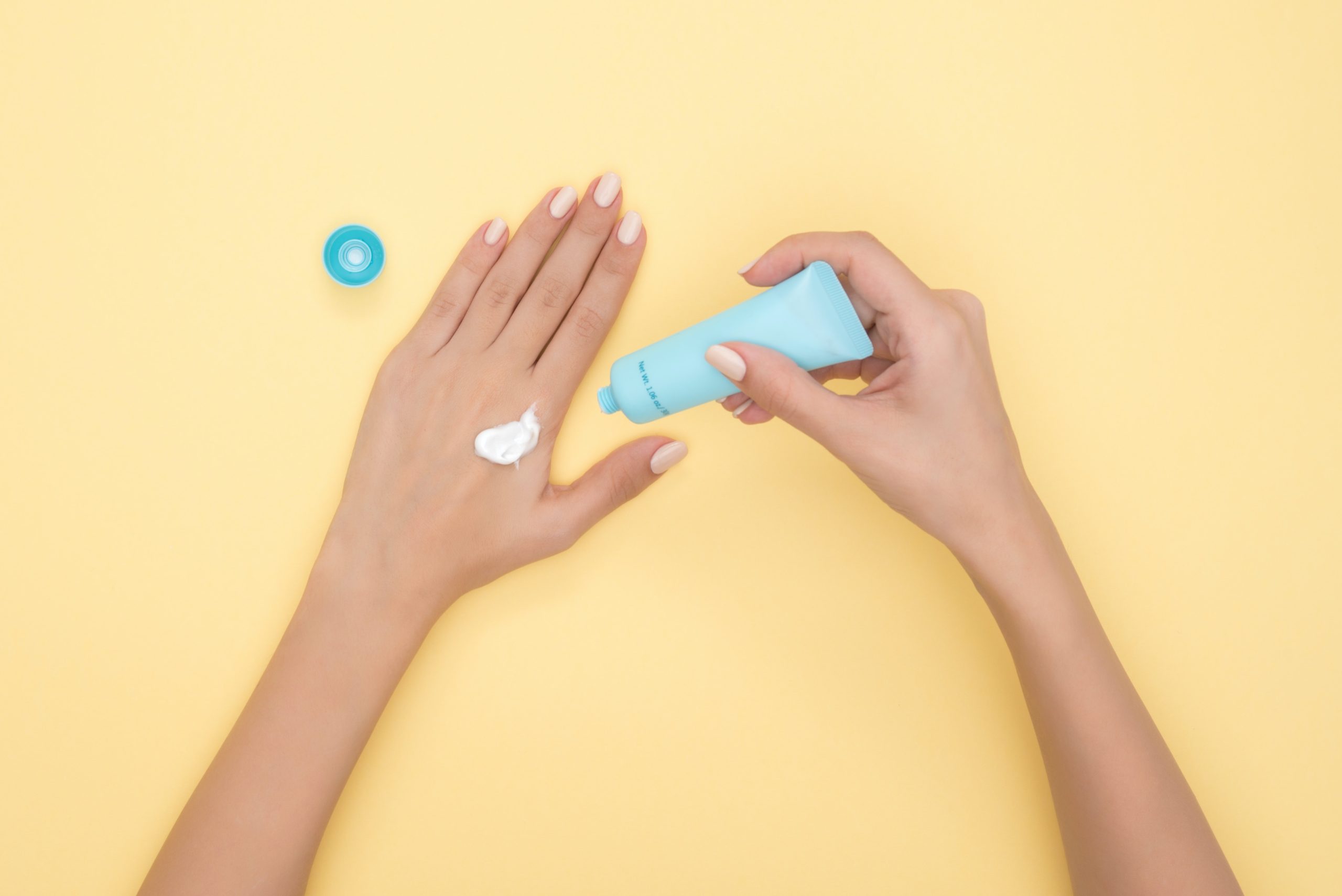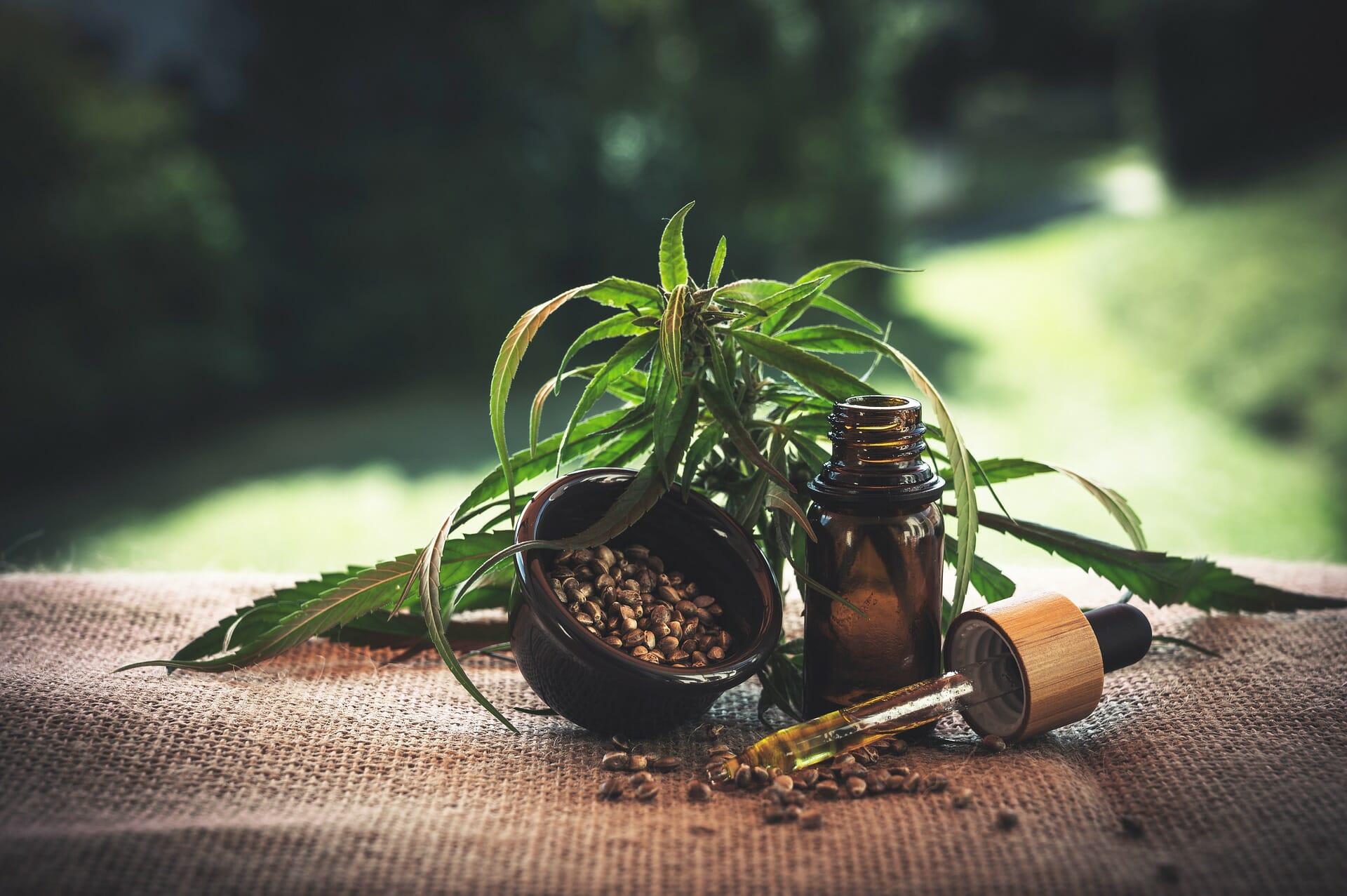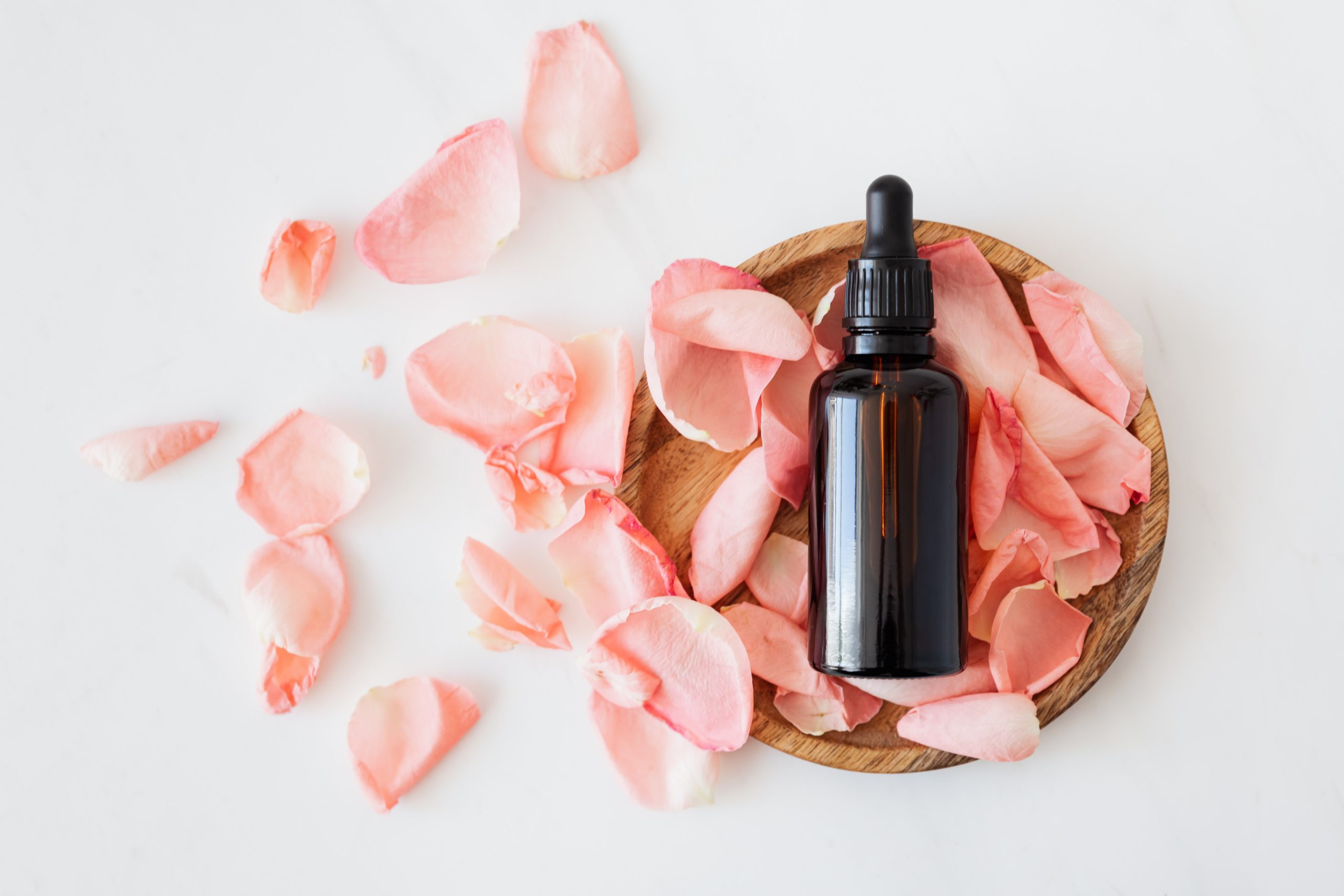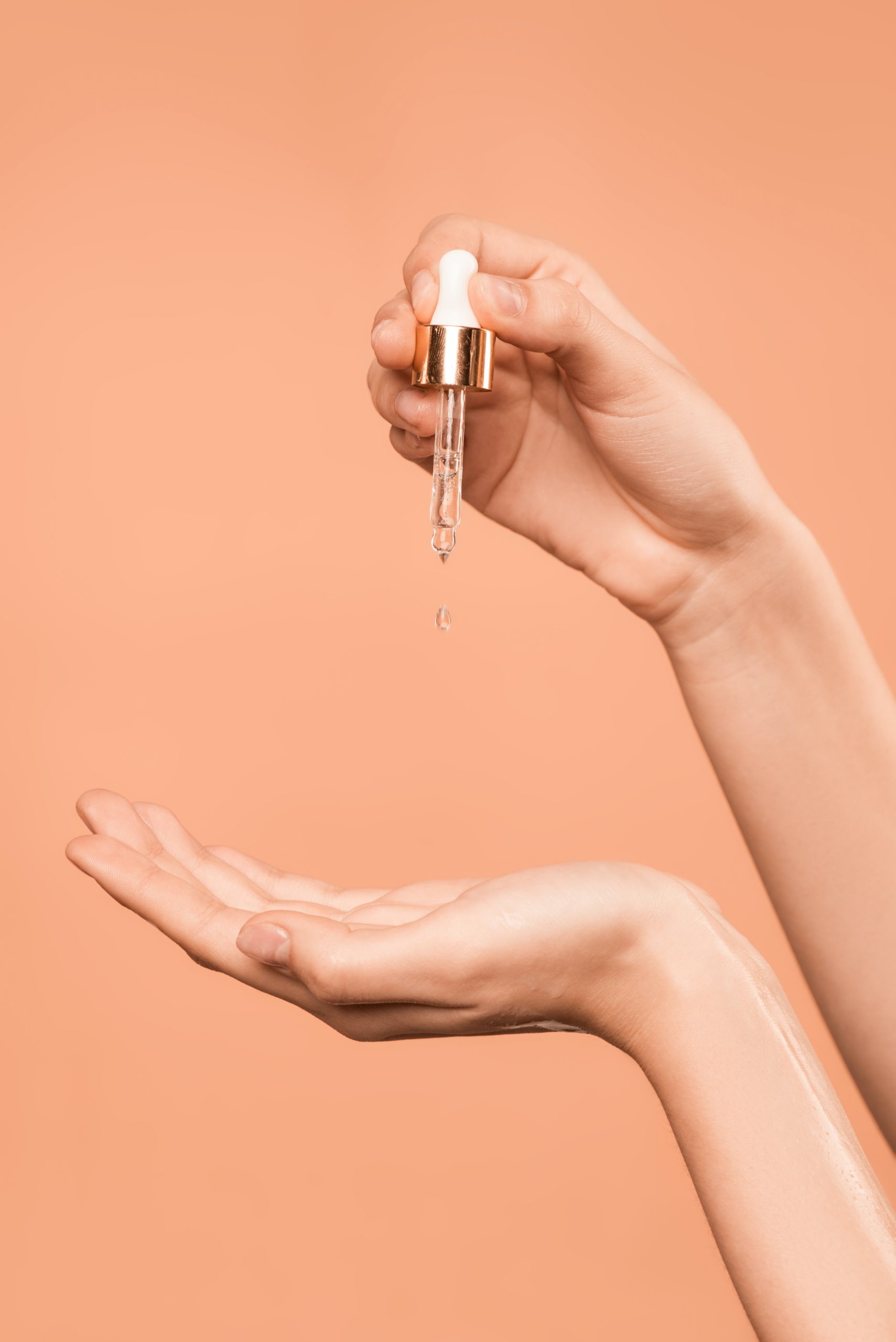This website is informational and cannot diagnose or treat illness or disease. Medical marijuana should be used under the direction of a licensed healthcare provider. This site contains advertisements. If you click a link and make a purchase, MarijuanaMommy.com may receive a commission.
Ingredients that Can Boost Healthy Skin
When looking for a new product to help address the effects of aging on your skin, you can quickly become overwhelmed by the number of different ingredients claiming to help. Without extensive research, it can be challenging to know how effective these ingredients and products are. The following are the most effective options to help maintain healthy skin.

Sunscreen
Many substances and vitamins have been shown to help reduce aging on the skin, the most effective (and important) solution is simple sunscreen. If you’re not using sunscreen regularly, then there’s no point in investing any more money in other products that claim to help your skin. Many of the effects people are looking to reduce, like wrinkles and spots, develop from exposure to the sun. Stopping this source of damage is the most powerful way to protect your skin.
Broad-spectrum sunscreen is recommended as it stops both UVA and UVB rays from the sun, the first causing signs of aging and the second that burn the skin. An SPF of at least 30 is recommended, which will stop most of the damaging UV from hitting your skin, either by blocking it or absorbing it into the skin to stop the damage at a cellular level. Sunscreens come with
Ceramides
The top layer of your skin is known as the skin barrier, which keeps moisture in and retains hydration while keeping irritants out. Ceramides are a type of lipid that helps maintain the strength of this barrier, so it can be a powerful way to maintain your skin’s health. The more hydrated your skin is, the more youthful it will look, an essential part of your anti-aging arsenal. If you’re prone to dry skin or eczema, a product with topical ceramides like Private Label Skin Care may be beneficial.
Collagen
Collagen is a protein found in the skin, hair, and nails and helps keep them strong and healthy. Skin without enough collagen will lose its ‘bounce’ and start to look less firm, which is why, as we age, our skin changes as the body produces less collagen naturally. Sun exposure can also expedite the effects and speed up how quickly the collagen in our skin breaks down. While it may seem straightforward that we should add collagen into our skincare routine, it, unfortunately, isn’t that simple. Collagen is a large molecule that makes it difficult to find a topical method that will significantly impact. Equally, taking collagen as a pill isn’t the most effective way of getting the protein to the correct part of the body, so while the jury is still out, there’s no harm in taking a collagen supplement or cream.

CBD – Cannabidiol
CBD, or cannabidiol, is a molecule found in hemp or cannabis. CBD does not cause intoxication or euphoria (unlike its cousin, THC). CBD has quickly made its way to the beauty and skincare industry. In many areas, hemp-based CBD products can be purchased at a local pharmacy or ordered online. CBD beauty products can also be found at major retailers like Sephora. Thanks to easy access, more people are utilizing topical CBD for healthy skin.
Research states, “Recent data have shown that the endocannabinoid system is fully functional in the skin and is responsible for maintaining many aspects of skin homeostasis, such as proliferation, differentiation, and release of inflammatory mediators.” Preclinical evidence shows CBD may be a therapeutic option to address a variety of inflammatory skin conditions.
CBD also has been found to have antioxidant properties. Anecdotal reports show consumers are choosing topical CBD for a variety of skin-care purposes, from addressing dark spots and other skin imperfections, to easing acne. More research needs to be done on CBD, but the preclinical research and the anecdotal reports are promising.
Glycolic Acid
Glycolic acid is in a group of acids called ‘alpha-hydroxy’ acids. Unlike collagen, it’s made from tiny molecules that can penetrate deep into the skin. Using glycolic acid has an exfoliating effect, improving your skin’s texture and tone by dissolving dead skin cell bonds like other alpha-hydroxy acids. What makes glycolic acid unique is that it boosts collagen in the skin, giving it an elastic look mentioned above. The only issue is that it can irritate sensitive skin, so start with a mild product.
Lactic Acid
Like glycolic acid, lactic acid is an alpha-hydroxy acid, but is gentler on the skin and less likely to irritate. If you get a mild face peel or at-home exfoliator, there’s a good chance that it will contain lactic acid and leave your skin looking refreshed. Many exfoliating products have the issue of drying out your skin. Lactic acid is unique in that it can moisturize the skin and exfoliate it, making it a fantastic choice. If you use a product with lactic acid in it, beware that your face may be more sensitive to the sun, so ensure that you’re keeping on top of your sunscreen routine.

Hyaluronic Acid
Another prevalent ingredient in the anti-aging and skin hydration world, hyaluronic acid works by absorbing water and then traps it under the skin like a sponge. By doing this, your skin will be both hydrated and look plumper, and lines will appear to be filled in. Unfortunately, this is a temporary effect, but as the body creates hyaluronic acid naturally until around 20, there are no issues with regularly using a product. When using hyaluronic acid-based products, remember that moisture needs to be present for it to work, so apply it to the skin when it’s already moist with water or after using a moisturizer.
Jojoba Oil
Face oils have become popular over the last few years, but the idea can still be off-putting compared to the more traditional face cream. Of all the face oils available jojoba oil is one of the top choices on the market. Coming from the pod of a plant, it acts just like the oil found in our skin. For most people, it will also not clog pores and acts as a moisturizer, making it perfect for irritated or dry skin, and won’t lead to breakouts in spots. Jojoba oil also contains vitamin E, which has been shown to have antioxidant and anti-inflammatory effects as a bonus.

Retinol
Retinol is also known as vitamin A, and is a highly effective skin treatment ingredient. It works by increasing the rate your skin cells turn over, giving an exfoliating effect, and can combat fine lines and damage from the sun. If you have both wrinkles and adult acne or spots, this is a great option. There are some negatives, though – the main one is that too much can cause redness or irritation, especially for sensitive skin. Combat this by using only a minimal amount to start with – a pea-sized drop will be more than enough to cover your face with. Another tactic is to try to use it after moisturizing for added protection and then adding another layer of moisturizer on top.
Conclusion
There are a variety of topical ointments and creams on the market that promise to provide the most effective anti-aging ingredients you need in your skincare routine. The ideal skincare routine can vary from each person and it can take a little experimentation to find the ideal products for you. When purchasing new skincare items, always choose high-quality products free of contaminants, toxins, and impurities. As always, talk to your licensed healthcare provider before adding new supplements or medications to your healthcare routine.
Learn how to make your own CBD topicals easily at home. Learn five ways CBD oil impacts your skin.Trending Now






